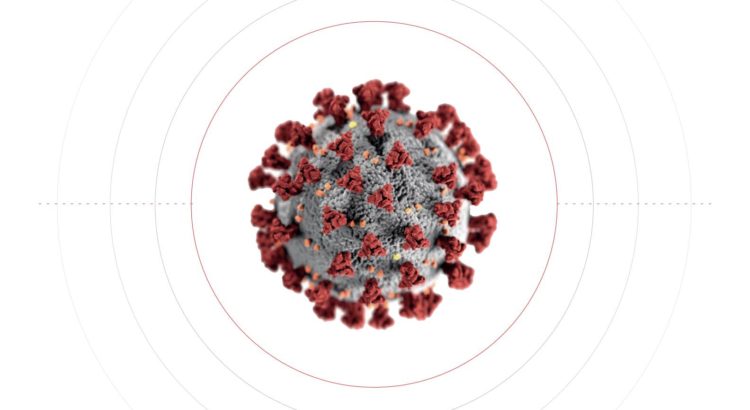
In all actions concerning children, the best interests of the child should be a primary consideration (Article 3 UN Convention on the Rights of the Child). We should put children first in all that we do.
Children and young people are the future of any society.
A recent BMJ editorial published on 23 February 2021 states that ‘Closing schools is not evidence based and harms children’1, going on to say that ‘keeping schools open should be the UK’s top priority’. This is the most critical message to convey here and it is an indisputable one.
Frontline clinicians and experts are alerting policy makers to an impending mental health catastrophe in children and young people.
Government actions in response to the pandemic have created a ‘perfect storm’ for the emergence and exacerbation of mental health problems in addition to creating significant barriers to effective treatment.
The following evidence outlines the myriad reasons why schools should never again close to mitigate the spread of COVID-19.
● Children are at extremely low risk from COVID-19, with not a single death of a previously healthy child.2
● They are also much less likely than adults to transmit the virus, indeed living or working with young children reduces the risk of severe disease.3,4
● The impact of the harms of public health measures and school closures is thus disproportionate to any benefits to children themselves or to wider society. 5,6
● Children and young people are facing an unprecedented mental health crisis, the scale of which is yet unknown. 7,8
● Half of young people aged 16-25 reported deteriorating mental health, with 1 in 4 feeling ‘unable to cope’. 9
● Self-harm, eating disorders and suicidal ideation have all increased.10,11 Eating disorder units have reported a 3-fold increase in referrals.12 More young children, as young as 10 years old, are self-harming.13
● The pandemic has taken a ‘devastating toll’ on the mental health of the young which will impact on their lives for years to come. 14
● Services were not able to meet pre-pandemic needs. 15,16 They are most certainly not equipped to meet the needs of children and young people post-COVID-19.
● Throughout extended lockdowns, at-risk children engaging in self-harm and other harmful behaviours (e.g. skin picking and OCD rituals) are less able to escape difficult situations and to engage in protective interests and behaviours.
● Face-to-face therapy has been restricted to only the most at risk young people. Since March 2020, most children that access therapy do so virtually. Many questions remain about the efficacy and desirability of existing digital interventions for children’s mental health problems, especially at a time in which children are socially isolated. 17,18,19,20
● Issues around availability of electronic devices to children in crisis, privacy whilst taking part in therapy sessions as well as individual clinical issues and preference for face-to-face appointments may restrict access to therapy by children, especially for the most vulnerable.
● Where face-to-face interventions are offered, PPE is worn and a ‘COVID-safe’ environment diminishes the therapeutic ‘space’. The impact of PPE and other measures including strict social distancing on therapy engagement and outcomes is not known. 21
● Government messaging and public response has created an overarching climate of anxiety in society, 22 which is detrimental to the mental health of the young, and which contributes to the development and maintenance of mental health problems.
● Other damage from restrictions includes increased child poverty, hunger and homelessness, 23 delayed cancer diagnoses and treatments, 24 loss of sport and music, deteriorating physical health 25 and eyesight problems including myopia resulting from increased screen time and loss of outdoor activity. 26,27
● The pandemic and resulting policies have put families under enormous strain. 28,29,30 Family members’ anxiety and response to Government messaging may be detrimental to children’s mental health and prolong their difficulties. 31 Families will require psychological support too, in order to help their children.
● Child abuse has risen. NSPCC child abuse referrals have risen by 43%.32 For many children, school is a place of safety and it is often teachers who identify abuse. 33 School closures have removed this vital safe-guarding access.
Educational Concerns
PHE has acknowledged the huge mental health and educational impacts of lockdowns and school closures and also that schools play only a small part in viral transmission. 34 It is thus imperative that schools stay open. Professor Russell Viner, President, Royal College of Paediatrics and member of SAGE said: “When we close schools we close their lives – not to benefit them but to benefit the rest of society.”
There has been an emphasis by the DfE on academic ‘catch-up,’ now ‘recovery,’ and ‘lost learning,’ with little mention of mental health recovery.35,36 It is vital that any ‘recovery’ strategy takes account of trauma suffered by young people, with trauma-informed policy provided to teachers alongside adequate pastoral time equipping them to support their students. 37
Learning will not happen without good mental health and recognition of ongoing multi-cause anxiety for some young people. Transitioning back to school, exams, masks, testing, social distancing and family stress will continue to impact wellbeing and the ability to learn.
Those with special educational needs will face additional challenges which should be considered. Anxiety will commonly be expressed through challenging behaviour, or withdrawal, and the underlying causes need to be addressed and supported. 38
The Institute for Health Promotion and Education recommends a ‘settings-based’ approach to well-being, including schools, and there needs to be a move towards a trauma-informed approach across these community settings, with the input of expert psychologists. 39,40
Given the minimal transmission of SARS-CoV-2 outdoors, and the essential role of sunlight and outdoor activity for well-being, outdoor activity and a return of amateur sport is an integral part of mental health and well-being recovery. 41 There needs to be balanced access to creative arts, alongside academic learning, as a vital component of mental health recovery. 42
As leading Developmental Neuroscientist Professor Uta Frith writing for ‘Researchers in Education and Adolescent Child Health and Wellbeing’43 put it in July 2020, “Children and young people need to know that the state cares about them .” 44
Endnotes
- Closing schools is not evidence based and harms children
- Deaths registered weekly in England and Wales, provisional
- Enhanced surveillance of COVID-19 in education settings: Overview of enhanced surveillance of COVID-19 in education settings
- Coronavirus (COVID-19) related deaths by occupation, England and Wales: deaths registered between 9 March and 28 December 2020
- Benefits of remaining in education: Evidence and considerations
- Children in Lockdown: What Coronavirus means for UK Children
- Rapid Systematic Review: The Impact of Social Isolation and Loneliness on the Mental Health of Children and Adolescents in the Context of COVID-19 Loades et al, 2020
- Power, E., Hughes, S., Cotter, D., & Cannon, M. (2020). Youth mental health in the time of COVID-19. Irish Journal of Psychological Medicine, 37(4), pp 301-305
- Young people “unable to cope with life” since pandemic, warns Prince’s Trust
- Prof Ellen Townsend: The impact of lockdown on self-harm in young people
- Rise in self-harming pupils, exclusions concern and heads ‘firefighting’ – Ofsted’s latest ‘visits’ analysis
- Paediatricians warn parents to be alert to signs of eating disorders over holidays
- Dr Maria Loades: Lockdown loneliness in children and young people may continue to impact on mental health for years to come
- The Prince’s Trust Tesco Youth Index Report (January 2021)
- Education Policy Institute (EPI) Report (2018). Access to Children and Young People’s Mental Health Services
- Young Minds (2019). Impact Report 2018-2019
- Education Policy Institute (EPI) Report (2020). Access to Children and Young People’s Mental Health Services
- Apolinário-Hagen J. et al. (2017) Public Acceptability of E-Mental Health Treatment Services for Psychological Problems: A Scoping Review. JMIR Mental Health 2017;4(2):e10
- Hollis, C. et al. (2018). Identifying research priorities for digital technology in mental health care: results of the James Lind Alliance Priority Setting Partnership. The Lancet Psychiatry 5 (10). pp. 845-854
- Inchausti F. et al., (2020). Psychological Intervention and COVID-19: What We Know So Far and What We Can Do. Journal of Contemporary Psychotherapy (2020) 50. pp. 243–250
- Marler, H. & Ditton A. (2020). I’m smiling back at you”: Exploring the impact of mask wearing on communication in healthcare. International Journal of Language and Communication Disorders, 56 (1). pp. 205-214
- Minutes from the UK’s Government’s Scientific Advisory Group for Emergencies (SAGE), 23rd March 2020
- Poverty in the pandemic: The impact of coronavirus on low-income families and children
- Lockdown measures reduced the risk of COVID-19, but had unintended consequences for children
- Reopening of schools vital to boost children’s activity levels
- Lockdown screen time having negative effect on nation’s eye health
- Progression of Myopia in School-Aged Children After COVID-19 Home Confinement
- Daly, M., Sutin, A., & Robinson, E. (2020). Longitudinal changes in mental health and the COVID-19 pandemic: Evidence from the UK Household Longitudinal Study. Psychological Medicine, 1-10
- Bradbury-Jones, C. & Isham, L. (2020). The pandemic paradox: The consequences of COVID-19 on domestic violence. Journal of Clinical Medicine, 29 (13-14), pp. 2047-2049
- Da Silva, J.A. & Testino G. (2020). Risks of alcohol abuse, alcoholism and stress-related drinking during the COVID-19 pandemic. Alcoholism and Drug Addiction, 33 (1), pp. 95-98 48
- Spinelli M. et al (2020). Parents’ Stress and Children’s Psychological Problems in Families Facing the COVID-19 Outbreak in Italy. Frontiers in Psychology, 11, p. 1713
- Christmas warning as child abuse contacts to NSPCC helpline rises 43%
- ‘Toxic lockdown’ sees huge rise in babies harmed or killed
- Primaries ‘safe’ to open soon, say health experts
- Covid: Gavin Williamson ‘looking at’ longer school day and shorter holidays
- Education Secretary speech to FED National Education Summit
- Trauma-informed approach in schools helps staff and benefits students, new report says
- Behaviour is about relationships. The DfE ignores this
- Children’s mental health: the UK Government needs to be far more ambitious
- The Role of Schools in Early Adolescents’ Mental Health: Findings from the MYRIAD Study
- Survey shows UK parents’ concern over Covid effect on children’s activity
- What is the evidence on the role of the arts in improving health and well-being? A scoping review (2019)
- Reachwell: Researchers in Education and Adolescent Child Health and Wellbeing
- What can science say about the consequences for society of children missing out on schooling for 6 months?



